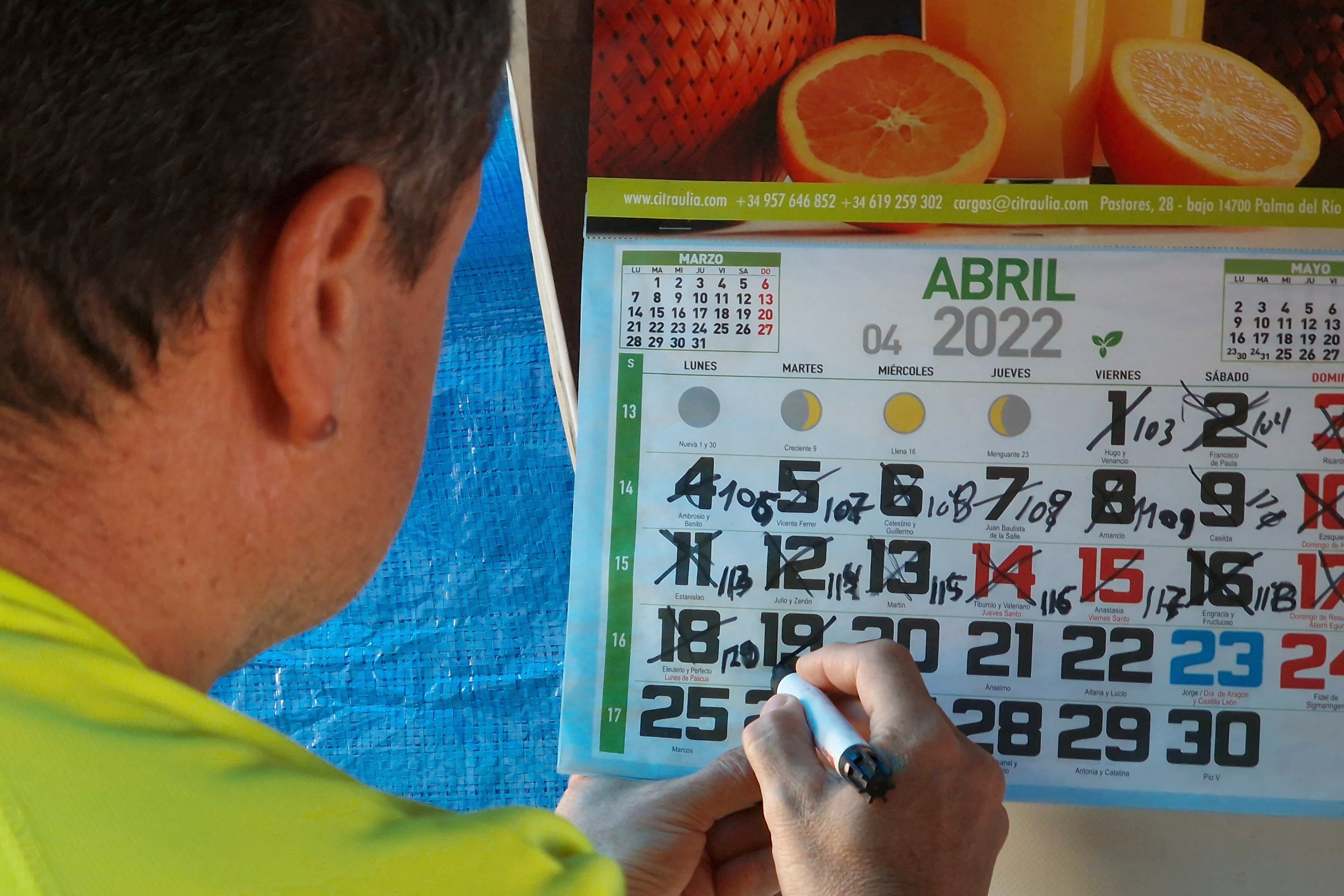The workers locked up in the Zumosol factory in Palma del Río (Córdoba) have reached an agreement with
Zumos Palma and Toksöz
, the two companies with which they had been in conflict for almost a year.
The employees will leave the factory, which will be able to resume activity, and will pay them compensation for unfair dismissal and, in addition, they have also promised to pay them the wages they are owed before February 28, 2023.
"It has cost blood, sweat and tears," celebrates
Fernando Trujillo
, one of the affected workers and CCOO union delegate.
Now, he admits, "
the spirits are through the roof after so many hardships
", but it has not been easy to achieve this victory.
More than a year has passed since the ordeal began - it all started in November 2021 - and more than 11 months since they began their protests.
During all this time they were locked up in the factory, but also trapped in
a business, judicial and bureaucratic labyrinth
.
Zumosol is a brand created by Pascual, but this firm has had nothing to do with it for a long time: it is now owned by Zumos Palma.
And this, for its part, belongs to the Turkish investment group Toksöz Grup Sanovel.
However, it did not operate the squeezing part of the factory - there is also a packaging part that has been owned by LGC Fruit since 2019 - but rather rented it to a third company, the Brazilian Citrosuco.
A worker from Zumos Palma, during his confinement in the factory. Gogo Lobato WORLD
When the last agreement between the Turks and the Brazilians ended, Zumos Palma filed an ERTE and looked for a buyer for the factory.
Finally, the person who decided to buy it was the Sevillian Central Andaluza de Gestión y Suministros Plásticos, SL (Cegeplas),
a company with no experience in the sector and a share capital of just 3,000 euros
.
On November 10, the factory workers were discharged from Social Security by Zumos Palma and Cegeplas discharged them, but just over two weeks later they broke the contract and also discharged -retroactively- the employees .
On December 20, they locked themselves in the factory to denounce what they considered
a liquidation through a shell company
.
They also asked that they be reimbursed six payrolls that were owed to them by an ERTE that was later considered illegal.
Now they have reached this agreement that recognizes unfair dismissal -they have already been paid- and for which Zumos Palma and Toksöz agree to pay those six months of salary.
"That we have a little money in the account is really a relief," Trujillo admits.
"We can plug many holes, because we have received loans from everywhere and now we have to repay them."
During the first months of their confinement in the factory and the labyrinth they could not collect unemployment benefits because, for all intents and purposes, they had not been laid off.
Finally they got the Labor Inspectorate to verify that the factory had no activity and they were able to go on strike.
In any case, the worker also celebrates "the satisfaction of seeing a reward for the fight" before remembering that "a year has passed without stopping, neither physically nor mentally": "It gives you great peace of mind."
"
If we had stayed in our homes, we would hardly have been able to achieve all this
," he reflects just hours after signing the agreement.
A worker from Zumos Palma, during his confinement in the factory. Gogo Lobato WORLD
During all this time, the 38 people affected
took turns to never leave the factory alone
, where they lived and lived at night.
In their makeshift camp in the factory parking lot, they shared food and hours and, according to their complaints, suffered as much cold and rain as one of the hottest summers in history.
"We were 38 workers and workers against a multinational: it was David's battle against Goliath," illustrates the trade unionist.
"At first we didn't have much hope that we could take him down."
He is now glad he did it-"little by little and with the help of a lot of people"-because his victory is an out-of-court settlement.
"Without the fight, the company would never have tried to reach this agreement with us and we would have had to go to court and wait a year, because justice, unfortunately, is slow and they would have delayed the processes as long as they could," he details.
"
You have to fight, there's no other choice; if not, they'll eat you
."
Conforms to The Trust Project criteria
Know more
Employment

